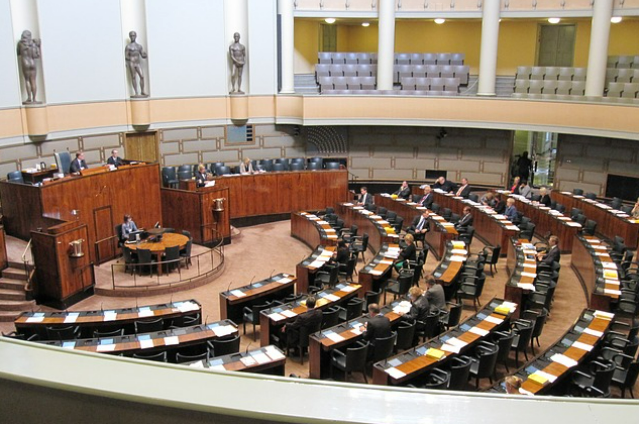
Recent incidents around the world most significantly the Russia-Ukraine crisis etc. have highlighted the issue of lack of ethics in politics.
'Politics moves upwards into ethics, and ethics ascends to theology.' - Russell Kirk.
Political ethics refers to making moral judgments to guide action and methods of decision-making for the public good. Political ethics, sometimes called political morality or public ethics, is the practice of making moral judgments about political action and the study of that practice. Ethics is usually defined as the set of moral principles that direct one's behaviour and define what is considered to be right and wrong.
It is often said that politics, ethics, and personal morality are not always aligned. Idealists in politics emphasize on the inclusion of ethics in politics while political realists like Machiavelli argued that there is no room for ethics in politics. For the realists, politics is an active struggle for power and nation-states are constantly engaged in a struggle with one another to maximize their security structure in the anarchic world order. There are some codes of conduct for politicians in many countries like the US, Canada, and Germany. In India as well, there's a code of conduct for the members of the Rajya Sabha and Lok Sabha.
Experts say that any discussion on ethical governance in a democracy must start with ethical values in politics. The standards set in politics profoundly influence many aspects of governance and the behaviour of the people at large. Nowadays, politics is more about competition than doing good for the public and it is no longer about idealism or constructive criticism. Experts say that it should be 'we' rather than 'they and us' in a diverse democracy.
Various perspectives regarding Political Ethics:
- Politics and ethics are completely separate: Politics is considered a state of continuous struggle for power and thus the politicians cannot be bound by some ethical values that would constrain the pursuit.
- Ethics is integral to Politics: Aristotle believes that ethics and politics are strongly related. Ethics examines the good of the individual, while politics examines the good of the state, which he considered to be the best type of community. Example:- The Indian Constitution is a prime example of how ethics is integral to politics.
- Politics without ethics is disastrous: The repercussions of various recent incidents have an impact on the country and the public at large. Experts point out that politicians are also public servants - their actions should be for the public good and their opinion should not be insensitive towards any community.
Mahatma Gandhi also said that politics without principles and ethics would disastrous. He said that the end goal of politics is to serve the people, not politics itself.
Hence, politics and ethics are closely interrelated with each other rather they are two sides of the same coin. They have a complementary and supplementary relation to each other.
